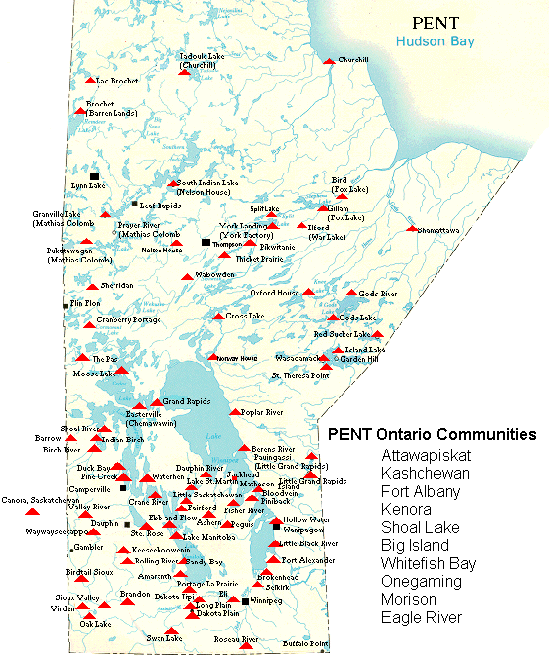PENT is a community-based teacher education program of the Faculty of Education of Brandon University. Students combine paraprofessional work in their community schools from September to April with courses at Brandon University from April to July. The new program of studies is the Brandon University After Degree B.A./B.Ed. program in either the early or middle years area. Student teaching is carried out during the school year in conjunction with paraprofessional work.
While studying on campus, students have access to a modern library and computer facilities. Studying with students from across Manitoba provides opportunities to interact professionally and socially with people from many other communities. Most classes are taught by regular faculty at Brandon University.
A shortage of Middle Years teachers with adequate academic preparation in Math and Science has led to the introduction of a new more-specialized teacher education program. The new program had its first intake of students in the Spring of 2002. Since this is a more specialized program, subsequent intakes will depend upon the demand. More details of the program are available in the PENT Handbook.
Program Financing
All program costs are borne by the sponsors. There are no other sources of funding. Sponsors pay a fixed annual fee for each student which covers all tuition, fees, books and supplies. Brandon University sets fees in accordance with budgetary requirements.
Program Governance
PENT is a program of the Faculty of Education and is governed by the regulations of Brandon University. The PENT Advisory Committee oversees the Program and includes representatives from the Manitoba Metis Federation, Southeast Resource Development Council, Keewatin Tribal Council, West Region Tribal Council, Dakota Ojibway Tribal Council, Interlake Reserves Development Council, Frontier School Division, the PENT Student Body, Manitoba Teachers’ Society, Director of Teacher Certification and Records, Department of Education, Faculty of Education and PENT staff.
This map of Manitoba shows the home communities of present and past PENT students.

Orientation
Orientation for New Students
A one or two-week orientation before classes begin is mandatory for all new PENT students. Sessions include study skills, familiarization with the computer system, library, and the program of studies, as well as recreational and cultural events.
Taking Courses in PENT
Students take six credit hours (2 courses) in each month for a total of 24 credit hours each year, from the beginning of April through July. To help students achieve the maximum success in their studies, PENT provides the following services:
- Some class times extended from 36 hours to 48 hours or more
- Extra attention for writing skills and mathematics
- Study labs conducted by student assistants for some courses
- Academic counselling
- Personal counselling
Students with a grade point average of 3.00 or higher in both Arts and Education may request to take an overload if the course schedule will permit the overload.
Some students who attend in April may take 24 credits.
Materials
All materials required for all courses are supplied to students directly from the PENT office. These include textbooks, classroom supplies, and materials to complete projects and assignments.
Computers
All PENT students have access to computers for word processing, e-mail, and searching the Internet.
Field Experience
Doing Field Experience
With PENT students employed at the community schools as a classroom paraprofessional, they are expected to integrate student teaching with work in the school. As students progress through the program, they are expected to assume greater responsibilities for planning and teaching. PENT students start by teaching small groups and then progress to teaching entire classes. They are expected to teach and implement all current curricula: language arts, mathematics, science, and social studies. PENT students must demonstrate teaching ability in their final year by teaching all curriculum areas for an extended period of time.
Planning
Evaluation of Field Experience
PENT supervisors will observe and evaluate each PENT student two or more times each year. Expectations for these visits are detailed in the Field Experience section of the Student Handbook. PENT students are expected to seek and receive assistance and feedback from their cooperating teachers and principals on a regular basis as they develop their student teaching skills.
 “In this logo, I tried to incorporate the beauty and complexity of the culture, languages, people, and places that shaped my experience as a PENT graduate.
“In this logo, I tried to incorporate the beauty and complexity of the culture, languages, people, and places that shaped my experience as a PENT graduate.
